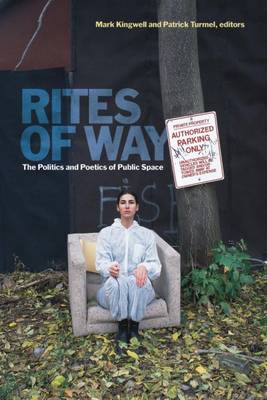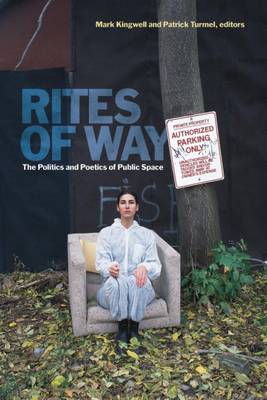
- Retrait gratuit dans votre magasin Club
- 7.000.000 titres dans notre catalogue
- Payer en toute sécurité
- Toujours un magasin près de chez vous
- Retrait gratuit dans votre magasin Club
- 7.000.0000 titres dans notre catalogue
- Payer en toute sécurité
- Toujours un magasin près de chez vous
Rites of Way
The Politics and Poetics of Public Space
Description
There are many ways to approach the subject of public space: the threats posed to it by surveillance and visual pollution; the joys it offers of stimulation and excitement, of anonymity and transformation; its importance to urban variety or democratic politics. But public space remains an evanescent and multidimensional concept that too often escapes scrutiny.
The essays in Rites of Way: The Politics and Poetics of Public Space open up multiple dimensions of the concept from architectural, political, philosophical, and technological points of view. There is some historical analysis here, but the contributors are more focused on the future of public space under conditions of growing urbanization and democratic confusion. The added interest offered by non-academic work--visual art, fiction, poetry, and drama--is in part an admission that this is a topic too important to be left only to theorists. It also makes an implicit argument for the crucial role that art, not just public art, plays in a thriving public realm.
Throughout this work contributors are guided by the conviction, not pious but steely, that healthy public space is one of the best, living parts of a just society. The paths of desire we follow in public trace and speak our convictions and needs, our interests and foibles. They are the vectors and walkways of the social, the public dimension of life lying at the heart of all politics.
Spécifications
Parties prenantes
- Editeur:
Contenu
- Nombre de pages :
- 210
- Langue:
- Anglais
- Collection :
Caractéristiques
- EAN:
- 9781554581535
- Date de parution :
- 08-09-09
- Format:
- Livre broché
- Format numérique:
- Trade paperback (VS)
- Dimensions :
- 152 mm x 226 mm
- Poids :
- 340 g

Les avis
Nous publions uniquement les avis qui respectent les conditions requises. Consultez nos conditions pour les avis.





